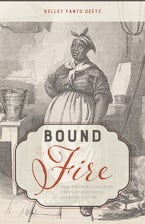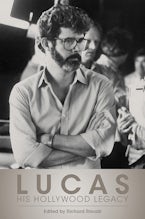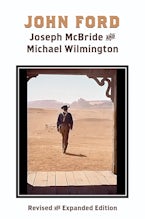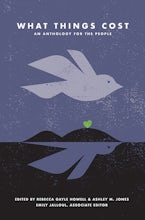Deetz ensures her readers understand the significant intellect, physical strength, endurance, and capabilities required for enslaved cooks to produce four meals per day from scratch in hot, open-hearth kitchens while under the constant threat of psychological abuse and violence. Scholarly yet readable, Deetz's book honors these American ancestors by reclaiming their rightful places and stories.
~Booklist
Kelley Fanto Deetz understands the pleasures and pains of cooking well for large numbers, and she knows that creativity within slave labor camps is especially remarkable. As an archaeologist, she is just the person to revisit Virginia's Big House hearths. Bound to the Fire brings life and dignity to the talented black artisans—many of them gifted chefs—who presided in these steamy kitchens. Despite their skills, such lifetime prisoners received few compliments from their diners, no wages from their owners, and only patronizing nods from generations of white writers and historians. Deetz uses letters and wills, utensils and cooking pots, even recipes and menus, in composing a suggestive salute to all those once obliged to put delicious food on the tables of the Tidewater elite.
~Peter H. Wood, coauthor of Created Equal: A Social and Political History of the United States
Bound to the Fire is the from-the-ground-up study we've been looking for. Deetz investigates the material culture of the enslaved through the lens of the cooks who forged in flame classic Southern foodways, and she has given us a powerful analysis of the lives of those ancestors whose hands stirred the pots in sorrow's kitchen.
~Michael W. Twitty, author of The Cooking Gene: A Journey through African American Culinary History in the Old South
This sweeping work draws on methods from archaeology to intellectual history to take a 360-degree look at the lives and work of enslaved cooks. The cooks were revered as well as feared; they held positions of authority, but labored under extra scrutiny, and they had some autonomy, yet they worked under the watchful eyes of the plantation elite. Through analysis of kitchens, labor, and handwritten recipes, Deetz relates a story that spans from the late seventeenth century to the Civil War in Virginia, rendering a full understanding of the men and women who cooked for the big house. Deetz exemplifies how enslaved people shaped their own destiny and how they were subject to extraordinary brutality, too. And then there are the recipes sprinkled throughout the book, which invite readers to taste the craft of these cooks. Bound to the Fire redefines much of what we thought we knew about the history and heritage of American cuisine.
~Alfred L. Brophy, author of University, Court, and Slave: Proslavery Thought in Southern Colleges and Courts and the Coming of Civil War
Deetz recasts the image of the plantation cook as a figure of power, dignity, and, frequently, resistance. This is a lively and insightful account of a still-largely-unfamiliar aspect of the history of American slavery.
~Publishers Weekly
Be aware that this is not a cookbook. Instead, this is a book of history and a chance to set it straight. Yes, there are old-timey half-recipes in here but really, Bound to the Fire is meant for opening eyes, rather than mouths.
~Courier-Tribune
A fascinating look at day-to-day work of Virginia cooks, the powers they wielded, and how they influenced what [you] eat. Americans must look beyond stereotypes and be mindful of those who literally nourished a nation. Be aware that this is not a cookbook. Instead, this is a book of history and a chance to set it straight. Yes, there are old-timey half-recipes in here but really, Bound to the Fire is meant for opening eyes, rather than mouths.
~Gazette-Journal
Deetz takes on the challenging task of examining the history of enslaved cooks through an archaeology of kitchens and outbuildings and by tracing outlines of individual lives from scant historical records. The result is a fascinating account, illustrative of the invisibility of individuals whose work was central to the public performance of plantation culture.
~Choice
[Deetz] does us a great service of expanding the literature connecting African and African American foodways with those with which we are familiar.
~H-Net Reviews
Bound to the Fire is a stew of many parts: biography, autobiography, recipes, cultural history, architectural-plan analysis, a review of archeological evidence, fragments of the imagined inner life of a cook, and more, all suspended in the salty broth of Deetz's outrage over culinary erasure, epicurean appropriation, and kitchen deceptions. With this dish, Deetz renders visible the lives of a specific group of domestic servants: Black cooks enslaved on Virginia plantations tasked solely with preparing meals for the planter's table.
~Public Books
Bound to the Fire addresses everything from recipes to the garbage behind the slave kitchen, from 'cook wanted' advertisements to family letters, from legal documents to slave narratives. Deetz creates a multifaceted picture of slave life and reminds us of the importance of such details as the size of the hearth, the weight of the pans the cook had to hoist, the number of people it took to get a big meal on the table, and how cooks learned the arithmetic necessary for kitchen work.... Bound to the Fire is... an invitation to reconsider a critical and often misunderstood figure in the slaveholding world...
~Legacy 36.2











